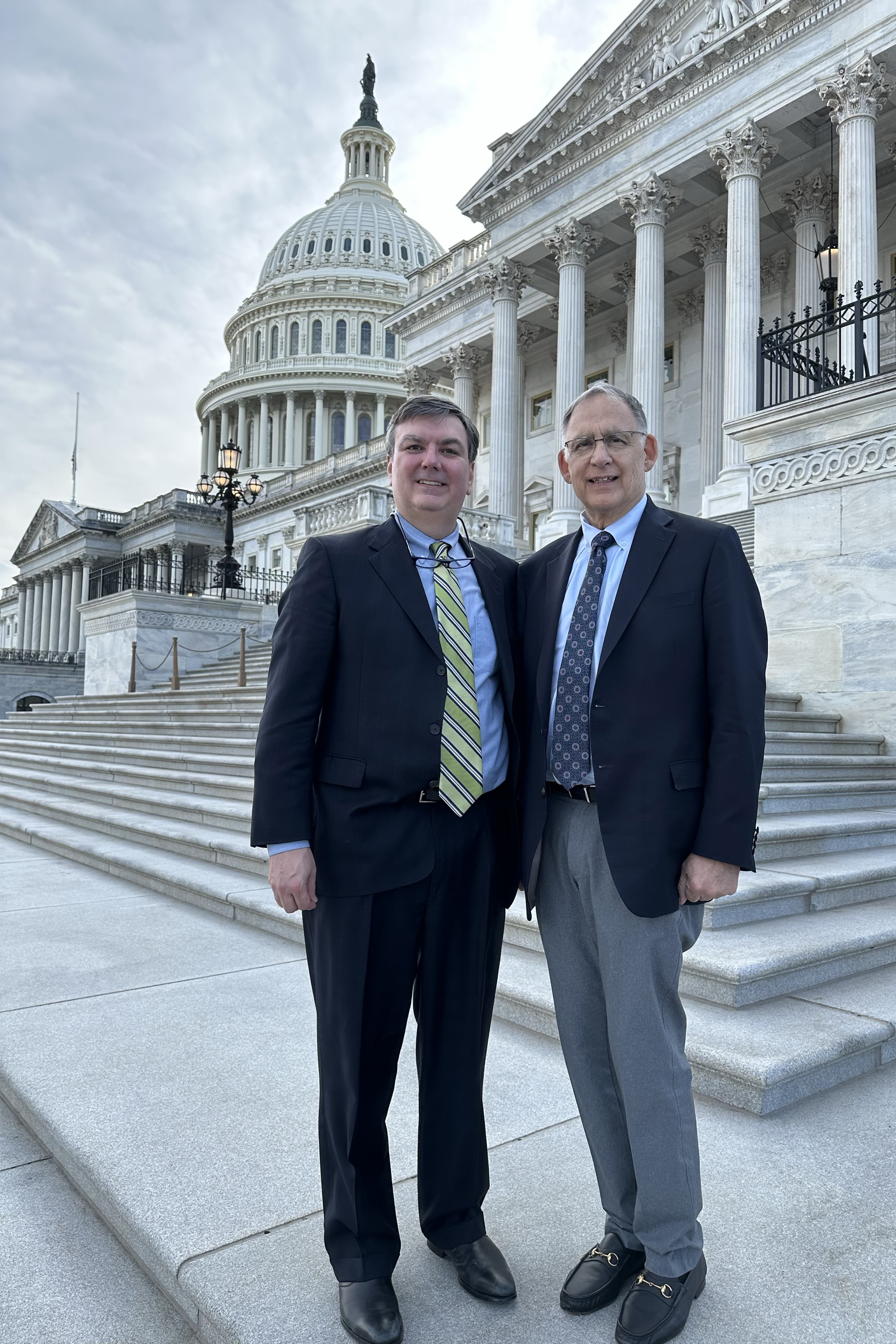 Riceland's COO Ben Noble (left) and Senator John Boozman meet up outside the U.S. Capitol
Riceland's COO Ben Noble (left) and Senator John Boozman meet up outside the U.S. Capitol
Mar 12, 2025
WASHINGTON, DC – Yesterday, Ben Noble, executive vice president and chief operating officer of Riceland Foods and a USA Rice Board member, testified before the U.S. Senate Agriculture, Nutrition, and Forestry Committee hearing on the state of the farm economy alongside a Georgia farmer, agricultural lenders, and a crop insurance company executive.
Witnesses and lawmakers agreed that the swift passing of a new Farm Bill is crucial not only for the current generation of farmers but the next.
In his opening remarks, Committee Chairman John Boozman (R-AR) said, “If we expect current and future generations of producers to not only survive, but thrive, we need to pass a strong five-year Farm Bill this year that strengthens the farm safety net and revitalizes rural communities, many of which are struggling to retain an adequate workforce to feed, fuel, and clothe the next generation of Americans.”
In his testimony, Noble urged lawmakers to act on a new Farm Bill with an enhanced farm safety net.
“We must take serious and substantial action that results in updated reference prices that secure a strong safety net for rice farmers,” Noble said. “This means a substantial increase in the PLC reference price and the assurance that payment limitations are increased to reflect modern-day farming.”
Noble shared key insights into Riceland’s business model and how the need for a new five-year Farm Bill reaches beyond farmers and throughout rural economies as a whole. “When our farmers suffer, we suffer,” Noble told lawmakers. “Ultimately, this impacts the entire region. It’s not overstating to say that if Riceland Foods doesn’t operate in many of these small towns, the towns no longer exist.”
Chairman Boozman said, “I truly believe there is no greater tool for rural development in many agriculture communities than strong risk management tools.”
He recognized that “Riceland is an anchor for the community in eastern Arkansas” and asked Noble to illustrate the impact a strong farm safety net has on rural communities. Noble acknowledged that the perception of the farm safety net “sometimes gets lost as just a transaction between the government and the farmer.” He explained the larger impacts of these programs: “When you think about how many times that dollar turns over economically in a rural community, whether it’s at the grocery store, rural health facilities, machinery repairs, countless other small businesses – rural America ultimately depends on the farmer as the backbone and really the heart of the entire community.”